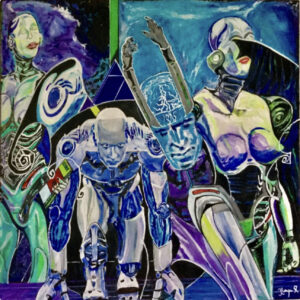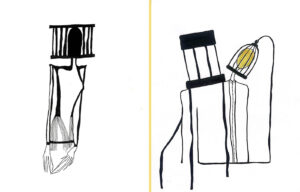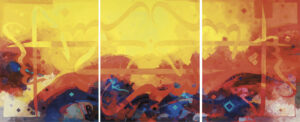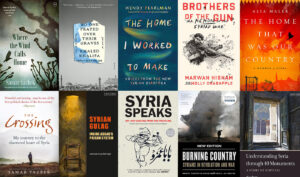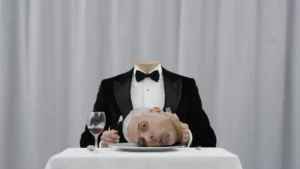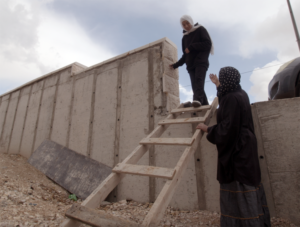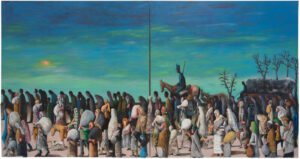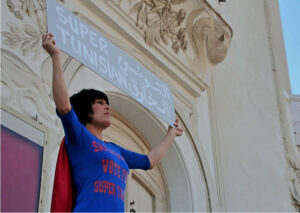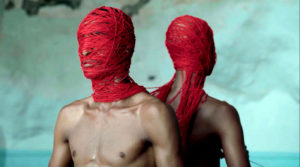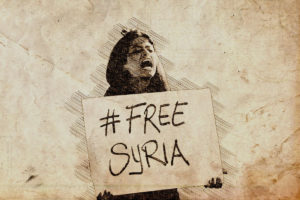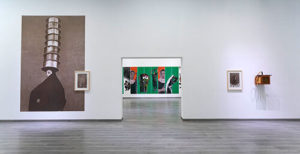Free Fall the novel is about the dispute of a Christian family over a 250-year-old Damascene house in the 5000-year-old Damascus. It opens with Yasmina returning home from the clinic with her father who has been diagnosed with Alzheimer’s disease, going through the streets of a city that has become frenzied with the war. In keeping with the madness, Yasmina has to kill someone. She therefore kills her father, or thinks she has. She, then relates her story, in a feverish stream-of-consciousness. After moving around from Dubai, to Beirut, to Montreal, Yasmina returns to Damascus to die on the same stone steps where she watched her father fall. The selections below are taken from the beginning and the middle of the novel. —Nouha Homa, translator.
Abeer Esber
translated from the Arabic by Nouha Homa
In the autumn of 2012, I fled the city as a murderer whose crime had just been uncovered. But Damascus did not wait for me to leave the city with grace: everything in it seemed to turn on me. The nights shrank, shrivelled like an amateurishly dyed cotton shirt; the dreary autumn day became as cold as a frosted dawn; the evening winds that tarred the pavements with dust and loneliness, forced people into their homes and left a darkness that foretold worse to come — an alarming darkness pierced by the flash and thunder of gunfire from near-by shelling.
Nevertheless, physical fear was not the only thing that drove me out of the city, which had lost all meaning and became a soulless public property. Even the soldiers were afraid in their own way, and, on sleepy days, instead of staying alert, they drank maté to relieve the tedium at their cement checkpoints, holding bags of popcorn or eating ice cream. As night approached, they seemed to remember where they were and asked you politely and softly to turn off your car lights for fear of snipers. We were afraid in a way that provoked us: we had to prove our pluck. Thus, we walked along Al-Hamidiyeh market streets, with friends, and took pictures at night, with unnecessary rashness, and, in a rare show of courage, we returned from the journalists’ club replete with non-alcoholic beer at eleven o’clock, pleased with our courage and downcast by the darkness of alleys empty except for a handful like us.
All this was not enough for me to leave until a “gang” broke into the flat I had rented in Al-Tiliani neighborhood, coming into the building in their civilian clothes, a mixture of black militia “tank tops,” fatigue trousers, shirts streaked with foul-smelling sweat, proudly displaying weapons and sniffing out corners in search of no one in particular.
The landlord, whose surname was Ayoubi, was the son of one of the oldest Damascene families. The pictures on the walls of his home bore witness to generations of Ayoubis, to the valiant leader Salah al-Din. This 80-year-old Professor Yasser Ayoubi, an ex-judge and international arbitrator in Switzerland, walked into our flat, choking with outrage at the surrealism of what was going on. He knocked on the doors of his tenants’ homes, accompanying a foul-smelling gang carrying weapons, looking for people fleeing from hot spots.
“It isn’t right to let them heat up the area.”
This is what one of them said, in a thick accent — as coastal as possible in defiance of all that remained Damascene in a city that was no longer Damascus. He was loading a hateful sectarian significance onto a cherished national accent. He wanted to assert the Alawi ‘qaf’, which had not always been Alawite. But in these times of madness between loyalty and opposition, the accent was made to carry an unhappy history of sectarian tragedy and tales of abuse and killing among Alawites and Sunnis.
At the time, I was living with a new lover who had been detained and questioned in the lobby of my building. He had escaped their unwelcome interrogations by referring them to me. He showed them a forged identification card which exempted him from obligatory military service. After a brief call to me on his mobile phone, in which he reminded me of his fake personal data, I realized from the urgency in his voice that he might have escaped certain arrest.
My blood curdled as the phone call ended with the knocking on the door of my flat. I opened the door to the armed group and saw that our landlord the judge had been dragged in by the armed intruders. His face was a bright red from a combination of age and outrage, and the veins of his temples were throbbing. His anxiety surprisingly had a calming effect on me. Thus, I wore a mask of stupidity as I laughingly opened my laptop to them, and still laughing incongruously, I explained that the other computer belonged to a male friend. As I was being subjected to a search and a conversation that was serious to the point of tears, I made it clear that I was writing a Ramadan series along with a friend, and that we composed it here in this flat. Shuffling with growing alarm between the bedroom and the lounge, I would remember some small thing and bring copies of documentaries with my name printed on them as a producer, and my novels as testimonials to good behavior, as well as translations of my work that showed my name in English. As they became more openly hostile and tiresome, I laughed nervously in my colorful morning pyjamas.
The landlord gave me looks to shut up while I continued to chatter like someone touched with madness. I was afraid and they were brutal.
“We saw your husband at the door of the building, what does he do?”
“I’m not married!”
There was a watchful silence and searching stares. My tongue dried out and sweat trickled from under my arm as it does on a terrified frog’s skin. I tried to say something then looked for help towards Mr. Ayoubi, the landlord. Like someone undressing on a public road I said:
“Yes, that’s Osama, the friend I write with here. He told you he is my husband to explain his leaving my home at nine in the morning.”
They looked at me, then at the judge, at the books with my name on them, then at my pictures in bathing suits on the laptop. They stared and stared. Then one of them said cunningly, like one who has understood it all and has arrived at the secret of the creation of the universe:
“He shouldn’t have lied. We don’t interfere in ‘personal’ matters. The ‘boys’ do not interfere in ‘personal’ matters!”
The ‘boys’ drank coffee, and I drank my idiotic giggles. That invasion was not what really frightened me, nor my run-away husband, who was not my husband at all. It was the comedy played out when I was asked by one of them about the quality of my books, and I answered, still in my buffoon’s pyjamas with the stripes down and across, in self-defence, that I was a novelist. I shut up completely when they asked me if I had written about the homeland.
“You have written about the homeland of course?”
The question rang in my ears like a church bell at a funeral. I carried it with me even in my nightmares. That night, my father’s body came to me; I saw his hand outstretched towards me, and I saw that I had not let him down. I tried to extend my hand too, but my arm was cut off from the shoulder. I could not focus, as if I knew what was to come. I was silent. My throat was not constricted by horror, I did not scream soundlessly and wake up trembling, sweating the water of my soul. I did not do any of this. I fell silent waiting for shots from a hidden gun, or the edge of a sledgehammer to fall on my neck, my breasts, my right knee, on my head that remembers the corpse living in its consciousness, the body of a murdered father, in a country that has turned entirely into murderers. I did not wake up from that dream; its substance never went away. Fear enveloped me like the spit of a frog: the more I flicked it away the more it stained me with filth. It attached itself to my throat, to the walls of my heart and the coils of the grey matter of my brain.
I wanted to escape from all of this as I was used to doing, but I needed money, for it was the anchor to my safety, the only country where I did not feel alienated. The more I had, the more doors would open to me. Neither languages, nor identities, nor affiliation, nor tenuous feelings are suitable for researchers in sociology. Money was created to settle all nonsensical problems related to philosophy and ethics. But Khalil and Marla controlled me now from their grave with the legacy that was no longer mine. It was this that had led to my madness and turned me into a murderess.
But was I really a novelist, did I love words, test them, carry them like a weapon, dandify myself with them? Did I master conversation, shelter with layers of interpretations, hide among the walls of images, and the metaphor of thoughts lost in a linguistic delusion? What did words add to my life, protect me from? Because nothing in my life was really frightening, a life that was not even worthy of a novel: everything in it was shameful, very trivial. Parents spoiled by overindulgence, raised within entire families who fed their arrogance. A rural father from titled country ‘Aghas’ and big landowners, who had never experienced poverty or suffered in any way so that he had to clear his reputation or purify his conscience. He was the star of his village for his university distinction, and for being the first physician in a very small cold village, fenced by the wind and sheltered by clouds. He came to Damascus to meet my mother, a lady of breathtaking beauty, a woman steeped in wealth and abundance. She grew up doing whatever she wanted, learning languages, traveling, dancing, smoking and falling in love over and over again. She lived to walk through life in houses of elegance and marble tiles, among fountains, miniature etchings, and open spaces of sky in the oldest houses of Damascus and its breathtaking princely buildings.
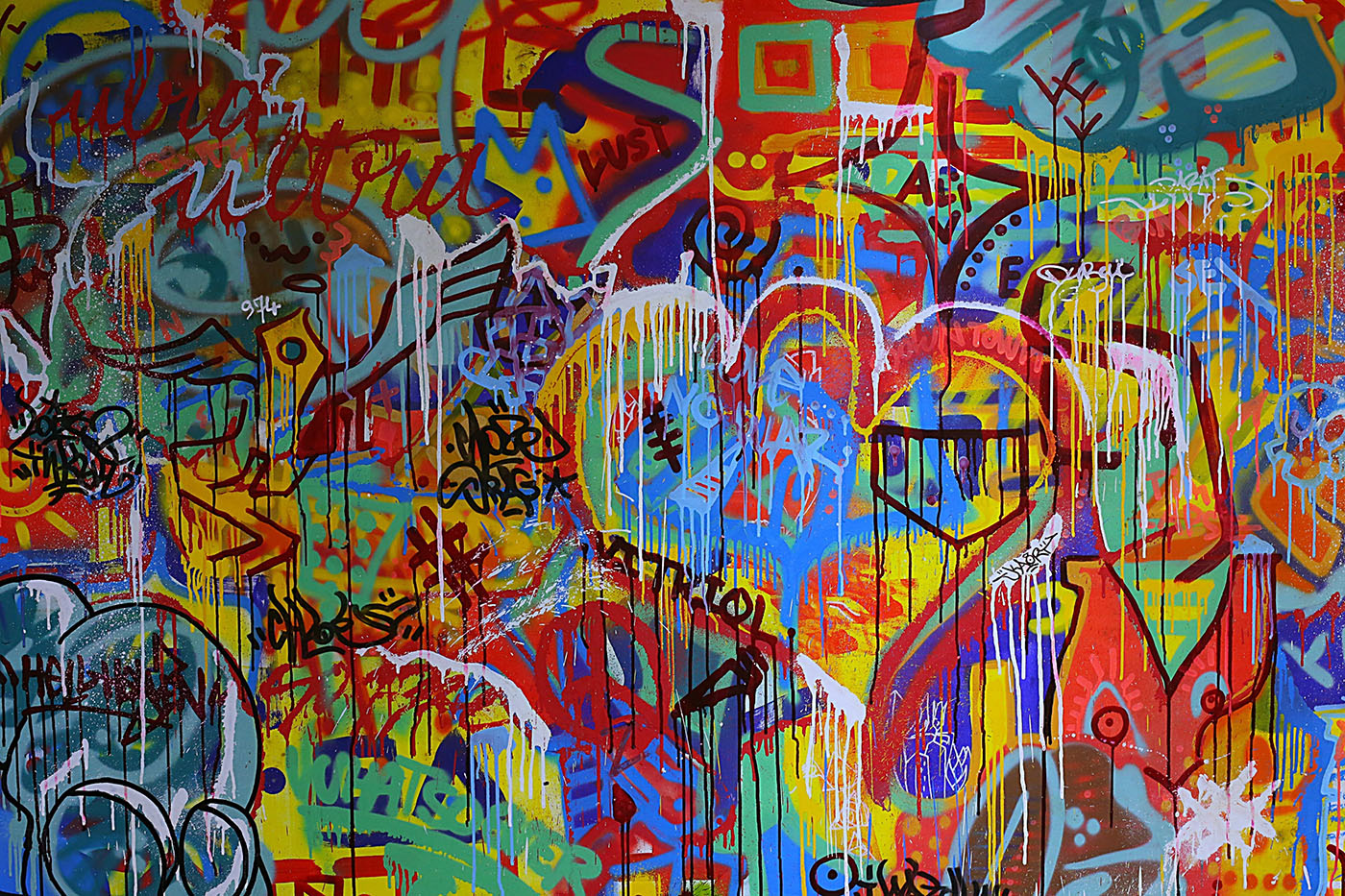
I arrived in Dubai at five in the morning, the hour of grace. It was like a moist fog walking with you on the pavement on a day of leisurely living. Have you ever seen the fog at dawn in Dubai, a city that rose out of the fog, from a wish that became true when someone blew into a cloud? Ever since then, the rain carries its thunders every winter and goes to water that land, and every winter there is rain.
Water is the story of this land, followed by farmers and pursued by shepherds. The city that rose from desire was beautiful, the young city lacking memory and wisdom escaped the curse of time. It was not burdened with the weight of the tales of the residents, it threw them off from its skyscrapers and scattered them to be shared by the wind and the deserts.
Old stories belong to the old and those who inherit the dead. It is a city with no time for memory, a city that is difficult to capture. It cannot speak about the past. You need to live its present. A floating city, indifferent to being an easy subject for satire and resentment.
There is no hypocrisy nor compassion in Dubai. There are those loved and those damned, the rich, and those who gaze at the rich. No anguish here, everything is temporary. Disappointment is a gentle prick to the heart … for none of this is yours: the place does not allow you to seize things, possess them, bequeath them. You cannot pass the city on to generations after you and create descendants. There are no grandparents in Dubai. The tired cities of the East retain them, with their death and dementia, and a history of violence is engraved with hot iron on the walls of their homes demolished by nostalgia and treacherous times.
This is a city without a history.
From the first gust of the heat on a humid evening, I fell in love. The metropolis with its languages and nationalities gathered on the pavements and cafés, the captivating buildings, the crowded streets, the lavish lighting of the glorious city with its dancing buildings filled me with a feeling of lightness, the desire to walk around the face of a gentle god. The city was a beautiful young girl without memories eating away at her, no unhappy history to ravage her face made beautiful by a caring lover.
In the streets of Dubai, dreamers walk, nouveau tourists, nouveau travelers, with their shorts and open sandals, their elegant gait, their expensive cameras, their fast cars, their night yachts and their music pulsating with a hundred rhythms. It is a city with a deep river, nearby sands, and beaches for night swimming. The beach is a city open for hurried love and “rushed” relationships. Everything in Dubai is easy and temporary: enjoy and run away before the city entices you from yourself and you think to make all this yours. Even if you are seduced by an appetite for possession, abstain. Dubai will escape from you like the air; it is a city of dreams outside reality, too beautiful to be reduced to the material. It told me this when it gave me the gift of its light so that I saw in my blindness a discernible path for pedestrians and passers-by. I understood all this from the first trembling of the warm evening. I will not share its strange music. I will hum my melody softly so that it harmonises with its carefully distributed orchestra. I will dance and live to its music with the lightness of a cat. I will run away before the city wakes up to my exposed face and flees from me then drops me from its slippery edges into a sand cemetery.
In Dubai I lived in a hotel for six months. My delightful room looked out from the eleventh floor on Sheikh Zayed street, along an infinite stretch of buildings with irregular shadows. The buildings with their graceful architecture seemed to be always dancing, they moved towards the horizon like the body of a woman, stretching. The agreeable metro building makes you feel that everything is as it should be and does not frighten you by taking you underground. The Dubai metro moves from light to light. It rises a little like spring air, in a single line toing and froing. Getting lost is not permitted in Dubai. The directions are arranged according to your whim and being lost is a meaningless word in a place open to all places.
There, in a luxury hotel suite, I lived in a place bigger than a room and smaller than a house. I waited for something to change after dozens of meetings with television stations, actors and directors of production companies. My life was an act of waiting and dullness, a simple summarized life without details, gossip, or memories of a violated homeland, and a relative who stole my house and exiled me out of all the places, a dead mother, a murdered father, and a lover who might have died under torture. In my safe hotel, I was completely reduced to easy “data.” My identity and my name were no longer important. Hotel rooms do not give you that distinction. It was enough to know the number of your room to wash away problems effortlessly: food, cleaning, coffee at all times, services provided by strangers to strangers. Your nationality, neglected in the suitcase, does not sting you with its identifying features. You leave it in the suitcase for a while. You cry quickly, get angry quickly, starve, get cold, grieve, exercise all your feelings quickly, none here cares about having your feelings flow over them while they brush them away for you, slowly. These are the responsibilities of the homeland and those who live in it: you overflow and flood your home, your loved ones, your friends, the inhabitants of your street, your neighborhood, your city, and the country you belong to.
In Dubai, you must practice your humanity in a hurry. Hotel rooms teach you to use your time efficiently, to curtail the small talk. Fortunately, your features do not reveal your identity and they protect you from casual busybodies. You are relieved. No one has cottoned onto your tale and asked you about your strange blood-soaked country. Everything here is rushed except sleep: you do not know how to buy it nor who stole it from you. Time is drawn-out. It erodes all of your strengths: your nostalgia, your eloquence. It might even make you feel immortal. The howling sandy breeze persuades you to rush back to your hotel room and finally feel that you have a shelter.
I lived in that room for a long time but then became tired of the delays, the lying, the dishonest apologies. And hotels were no longer romantic. After six months, even the spacious twin circular beds, with or without a partner, had lost their magic, their power to a astonish. Nothing excited any longer. I spent my time in getting to know Jennifer.
Dubai is a city that should be ‘remote’ so the music of the word could be felt, and the deception of migration confirmed. Here in this “remoteness,” a hotel room, arbitrary in shape and size, managed to accommodate the chaos of an entire life. The maid, who did not notice that I had followed her into the room to get my money that was scattered in all the bags, gasped. Her gasp told tales that were not biblical and did not aspire to be that. It was a gasp with an Arabic rhythm, a rhythm that had been crushed by a train.



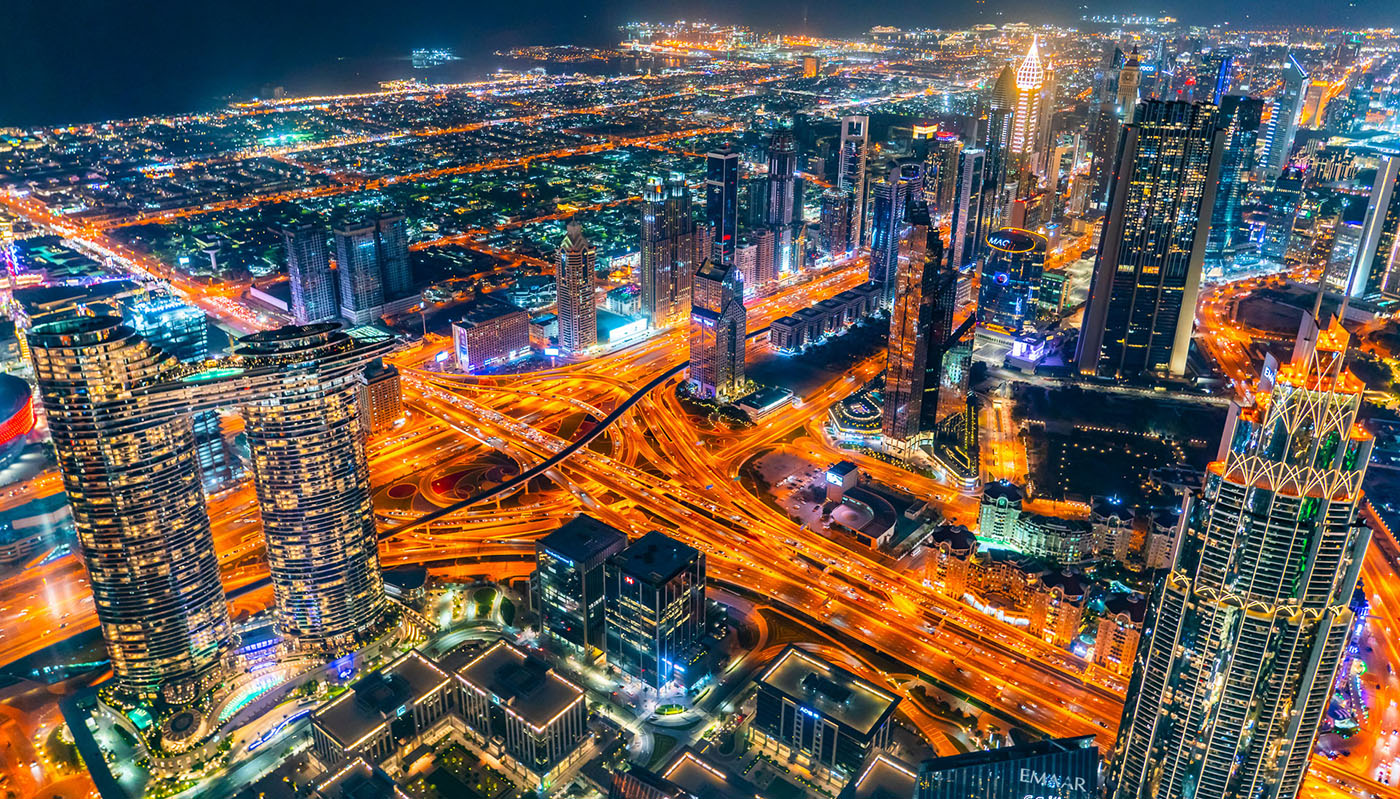
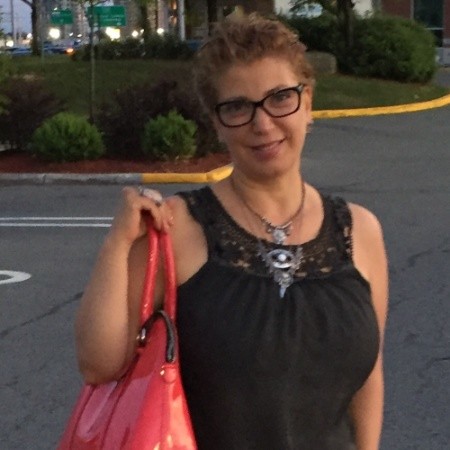




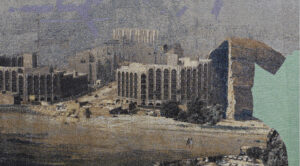
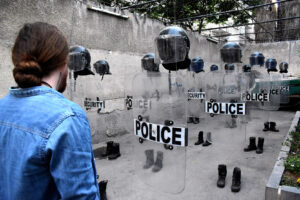

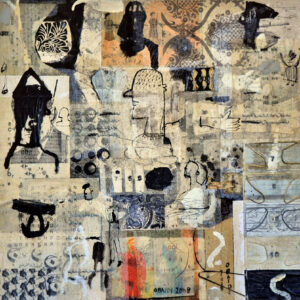

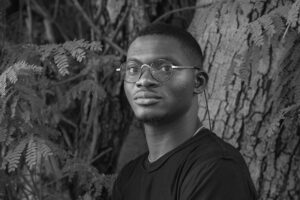

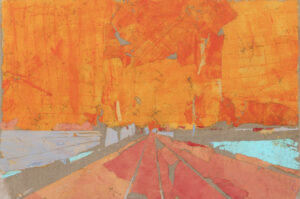

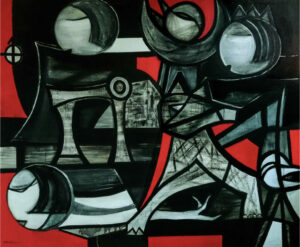


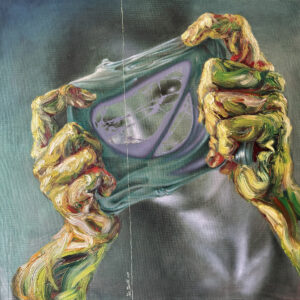

![Ali Cherri’s show at Marseille’s [mac] Is Watching You](https://themarkaz.org/wp-content/uploads/2025/09/Ali-Cherri-22Les-Veilleurs22-at-the-mac-Musee-dart-contemporain-de-Marseille-photo-Gregoire-Edouard-Ville-de-Marseille-300x200.jpg)



